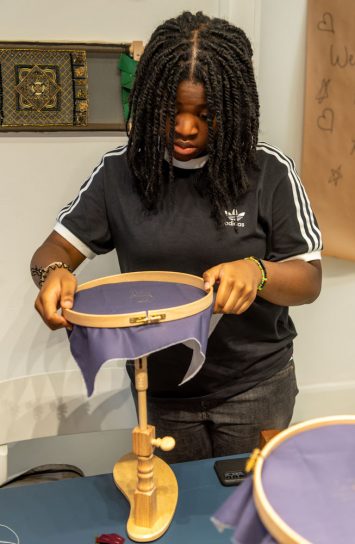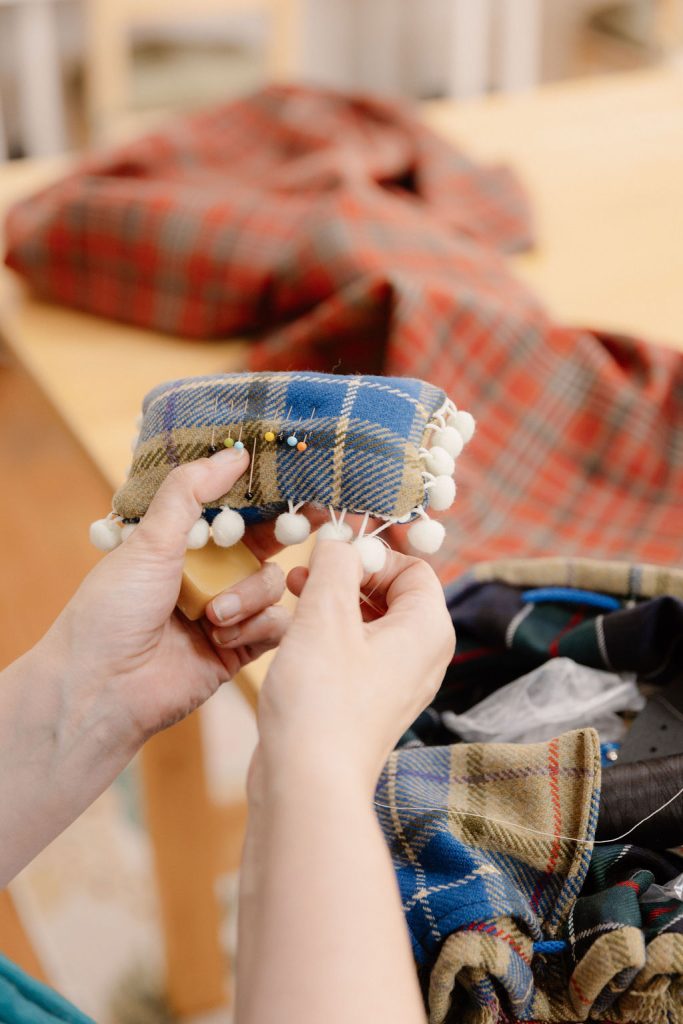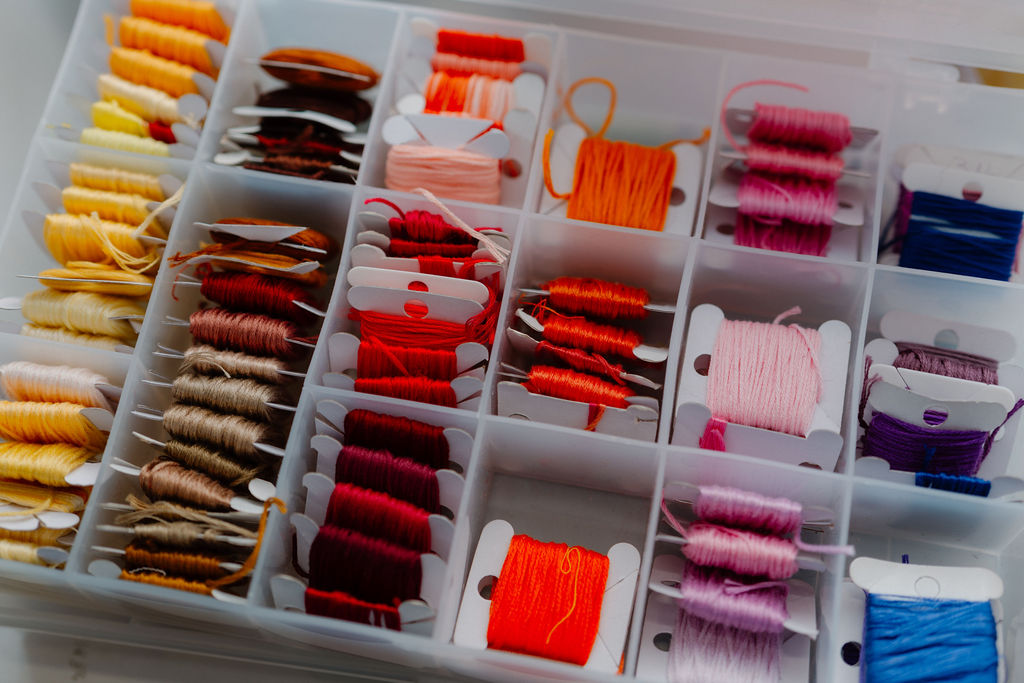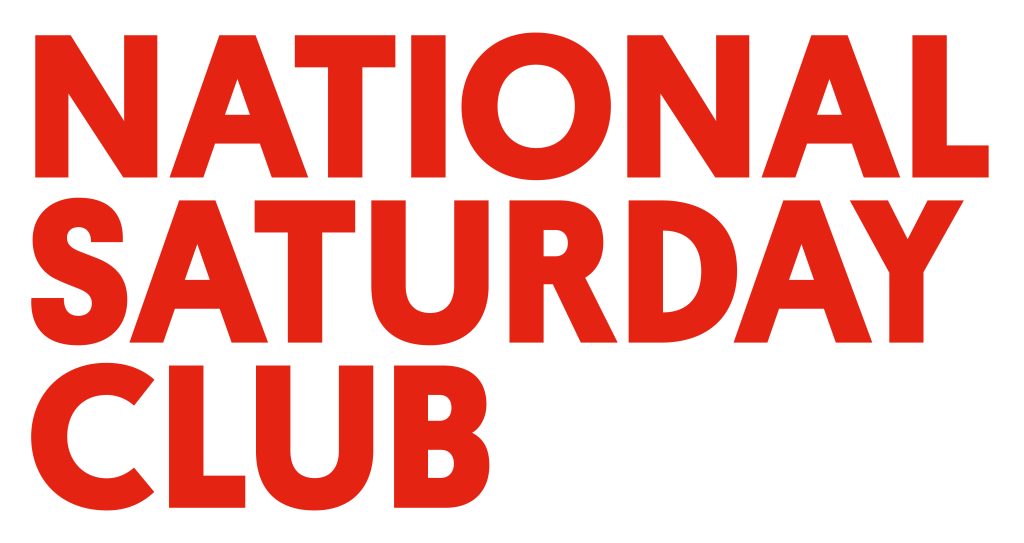At Làmhan, we believe in nurturing creativity, building confidence, and opening doors for young people in our community. That’s why we’re thrilled to announce our involvement in the National Saturday Club, a nationwide initiative that offers free, high-quality creative education to 13–16 year olds across the UK.

What is the National Saturday Club?
The National Saturday Club is a UK-wide network that gives young people the chance to explore subjects they love — from art and design to fashion, writing, science, and more — in a supportive, inclusive environment. The clubs run on Saturdays during the academic year, giving young people the space to develop new skills, meet like-minded peers, and learn from industry professionals and educators.
Crucially, the programme is completely free for participants, helping to remove financial barriers and ensure access for all. Each club culminates in a national Summer Show, where the young people’s work is exhibited at Somerset House in London — a moment of real celebration and recognition.

Why Làmhan Is Taking Part
At Làmhan, our work is rooted in creativity, culture, and community. We see firsthand the impact that creative expression can have on young people’s confidence, aspirations, and mental well-being. By joining the National Saturday Club, we’re expanding our commitment to youth development and providing a new space for young people in our region to explore their potential.
This club will give participants the opportunity to experiment with different art forms, explore new materials and techniques, and collaborate on exciting projects — all guided by experienced practitioners from the Làmhan team and beyond.

Making It Possible: National Lottery Awards for All
We are proud to share that our Saturday Club is fully funded by the National Lottery Awards for All. Their generous support allows us to offer this programme at no cost to families, helping us reach more young people from diverse backgrounds and ensure that everyone has the chance to take part, regardless of their circumstances.
We’re incredibly grateful for this funding — it’s helping us make a real difference, empowering the next generation of creatives in our community.
Get Involved
Our Saturday Club has already launched! It is open to young people aged 13–16 who are curious, creative, and ready to try something new. We only have a few places left for the 2025/2026 club so we suggest applying sooner rather than later at https://saturday-club.org/club/lamhan/.
Together, with the support of the National Saturday Club and National Lottery Awards for All, we’re making creative futures more accessible — and we can’t wait to see what our young artisans will achieve.

Our draft plan for the Club for the year
Dates: Week 1 – Saturday 6th September, Week 2: 13th September, Week 3: 20th September, Week 4: 27th September, Week 5: 4th October, Week 6: 1st November
Tutors: Nikkita Morgan (lead) and Gillian Lewis, support from Cara McAllister
An introduction to textile techniques with an emphasis on sustainable making. Members will work with deadstock, pre-consumer waste, and recycled textiles to create functional pieces.
Skills Covered
- Hand and machine sewing basics
- Embroidery techniques (e.g., running stitch, backstitch, satin stitch)
- Intro to patchwork and textile piecing
- Creative reuse and upcycling principles
Projects
- Pencil case
- Patchwork tote bag
- Embroidered apron
Block 2: Ceramics (Weeks 7–10)
Week 7: 8th November, Week 8: 15th November, Week 9: 22nd November; [National Visit to Edinburgh: Saturday 29th November] Week 10: 6th December
Tutors: Cara McAllister (lead) and Jo Watson
Working with air-dry clay and other non-kiln methods to explore the foundations of ceramics in a studio environment.
Skills Covered
- Hand-building techniques (pinch, coil, slab)
- Surface decoration (impressing, carving, painting)
- Functional design and sculptural forms
Projects
- Small decorative or functional ceramic items (e.g., trinket dishes, planters)
- Collaborative tile piece
Block 3: Fabric Creation – Weaving, Felting & Dyeing (Weeks 11–15)
Week 11: 10th January, Week 12: 17th January, Week 13: 24th January, Week 14: 31st January, Week 15: 7th February
Tutors: Gillian Lewis (lead), Jo Watson, support from Cara McAllister
Exploration of fibre-based processes to create new textiles from raw or recycled materials.
Skills Covered
- Frame and cardboard loom weaving
- Needle and wet felting techniques
- Basic spinning (optional)
- Natural and experimental dyeing methods
Projects
- Felted wall piece
- Small woven textile panel or accessory
- Dyed and embellished fabric swatches
Block 4: Knitting (Weeks 16–19)
Week 16: 14th February, Week 17: 21st February, Week 18: 28th February, Week 19: 7th March
Tutor: Jo Watson (lead), Gillian Lewis, support from Cara McAllister
An introduction to the basics of knitting, exploring both form and function in textile construction.
Skills Covered
- Casting on and off
- Knit and purl stitches
- Shaping and pattern basics
- Yarn and texture exploration
Projects
- Small knitted accessories (e.g., fingerless gloves, phone case, scarf swatches)
- Group yarn bomb or collaborative piece
Block 5: Introduction to Kiltmaking (Weeks 20–27)
Week 20: 14th March, Week 21: 21st March, Week 22: 28th March, Week 23: 25th April, Week 24: 9th May, Week 25: 16th May, Week 26: 23rd May, Week 27: 30th May
Tutor: TBC and Jo Watson, support from Cara McAllister
Members will learn traditional handwork and tailoring techniques used in kilt construction.
Skills Covered
- Measuring and pleating
- Stitching techniques specific to kiltmaking
- Structure and construction methods
- Pattern matching and fabric handling
Project
- A simplified/child’s kilt
Block 6: Final Project & Exhibition Prep (Weeks 28–30)
Week 28: 6th June, Week 29: 13th June, Week 30: 20th June
Tutors: Nikkita Morgan and Gillian Lewis, supported by Jo Watson and Cara McAllister
Club members will design and create a final project that incorporates techniques and skills learned throughout the year. The project will be displayed in a public showcase or exhibition.
Focus Areas
- Independent project planning
- Combining craft disciplines
- Presentation and display skills
- Reflective practice and peer feedback
Outcome
- Finished final piece (individual or collaborative)
- Contribution to end-of-year exhibition
Additional Notes
Sustainability is a core theme: recycled, reclaimed, and donated materials will be prioritised throughout. Guest craft professionals may be invited for demos or workshops where possible. The club aims to build not only technical skills, but also creative thinking, teamwork, and personal confidence through making.